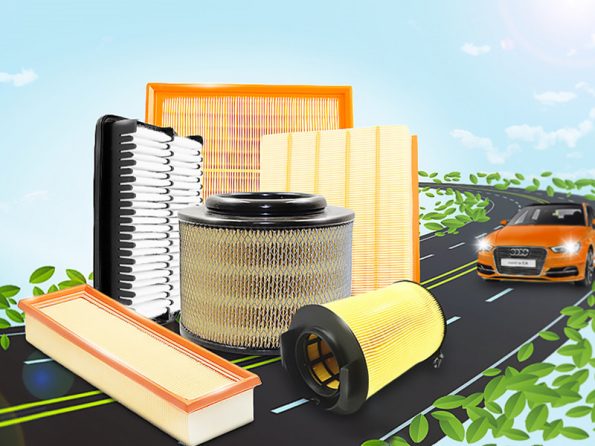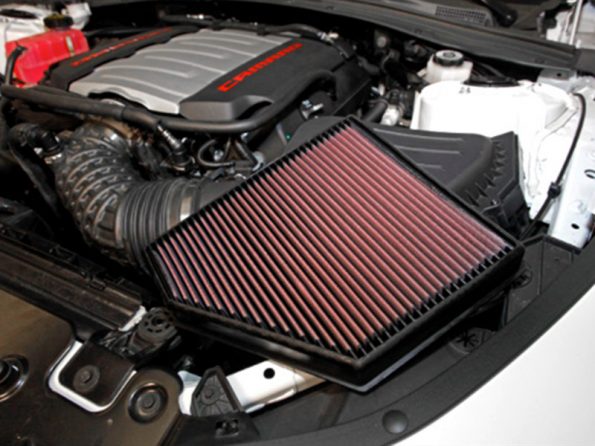 View Large
View LargeWhat is Engine Air Filter?
The engine air filter is a device located inside a cold air collector box near the front of the engine compartment. It is designed to trap particles including dust, bugs, other debris and moisture in the air before the air flows to the engine. Only allowing clean air into the engine is to prevent damage to internal engine components.
The engine in the process of work need to absorb a lot of air. If the air is not filtered clear, the dust in the air is drawn into the cylinder, which will accelerate the piston and cylinder wear. Larger particles entering between the piston and cylinder cause severe “cylinder pulling”, especially in dry, sandy working conditions. The engine air filter is installed in the front of the carburetor or intake pipe, in order to filter out dust and sand particles in the air and to ensure sufficient and clean air in the cylinder.
History of the Air Filter
For decades after cars were invented, internal combustion engines did not use air filters. They have very simple intake systems, usually consisting of only one air inlet. It wasn’t until 1915 that a car with an air filter arrived from the factory, when Packard installed one for that model in their Twin Six.
Since the introduction of air filters, the building materials and basic design have undergone many changes and several different types of filters have emerged. The first automobile air filter was made of paper, which continues to be popular as a filter medium. Later, there are many engine air filter types.
What’s the Difference Between an Engine Air Filter and a Cabin Air Filter?
Engine Air Filter
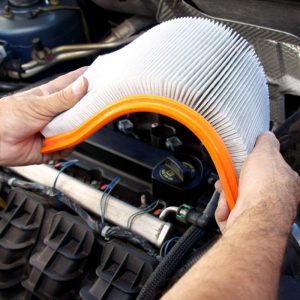
Cabin Air Filter
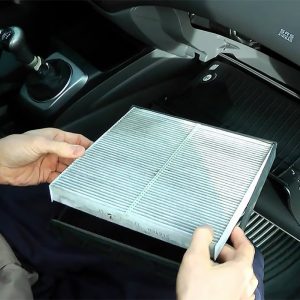
There are two very important air filters in the engine and cabin design of modern cars. The two filters have similar structures and materials, but they perform very different tasks. Changing these filters regularly is helpful to maintain the overall performance and comfort of your car. Before going to the auto store reservation service, you have to learn how these two components work to your car.
Function and importance of engine air filter
Generally, a vehicle uses an intake system to draw air into the engine during the internal combustion process. To prevent dust and debris from coming out of the engine, engine air filters sit in the front and center of the intake air. When air filters are kept clear and well maintained, only clean air reaches the interior of your engine. A car mechanic will check air filters for excess debris and recommend replacement if necessary to keep the engine running smoothly. Without a clean engine air filter in place, the car’s engine may suffer damage or reduce efficiency because dust particles prevent full combustion.
Similarities and differences of cabin air filters
A cabin air filter mimics the structure of an engine air filter, but actually performs a very different job. A cabin air filter is located at the entrance to the heating chamber to handle the air entering the passenger compartment. This cabin air filter filters out dust, soot, pollen, and other environmental allergens, providing a constant supply of fresh, clean air to the cabin space. This filter needs to be replaced periodically, because the element is filled with particles, which makes it much less efficient. Dirty cabin air filters not only reduce the efficiency of heating and air-conditioning systems, but also allow allergens to penetrate people’s airspace. Learn cabin air filter replacement.
Engine Air filter Type
Air Filter Construction Materials
According to the Wikipedia, some of the filtration media used by automotive engine air filters include:
- paper
- cotton
- foam
- stainles steel
- oil baths
- water baths
Engine air filter types
There are main 6 engine air filters as follows, according to the different filtration media material:
- Paper engine air filter
Filter paper is by far the most common filter. Paper filters are made from pleated paper with a flat panel form, which is durable. Due to the pleated paper filter’s high efficiency, easy usability and less cost, the pleated paper filter elements are almost the only option for automotive engine air cleaners. The filter medium is very different from paper used for writing, packaging, etc. Tuners have a misunderstanding that paper filters do not flow well, thus limiting engine performance. In reality, as long as the pleated paper filter is of a size suitable for the air flow encountered in a particular application, such a filter will only impose a negligible limit on airflow until the filter becomes seriously clogged with dirt. This is also used in the engines of construction equipment. The reason is that the paper is bent into a zigzag shape, the total area of paper is very large, up to 50 times the air opening.
Paper engine air filter at a low price does an important job of filtering your engine.they are not reusable, which means they need to be replaced at least every 15,000-30,000 miles depending on the driving. If the car is driven through dusty roads or highly polluted places, changing interval will be shorter.
- Foam engine air filter
Foam engine air filter is made from a special foam material, oil-wet polyurethane foam element which is soaked in oil. A dry or non-oiled oil foam filter will trap only the largest particles, thus the foam must be oiled and maintained so as to achieve its filtration function. Usually, it is only used in the car that is driven in some extremely dusty or polluted places. Besides, the foam engine air filter do not have issues with the air flow sensors as the cotton engine air filters do.
Foam has been widely used in the past as an air purifier for small engines on lawn mowers and other power equipment, but in these applications, automobile paper filters have largely replaced oil-wet foam. Foam filters are still commonly used in air compressors for air tools up to 5 HP. Depending on the grade and thickness of the foam used, the oil-wet foam filter element can provide minimal airflow limitation or very high fouling capacity, the latter characteristics making the foam filter a popular choice for off-road rally and other racing applications that encounter high levels of dust. Because of the way the foam filter captures dust, it can capture a large amount of dust without measurable changes in airflow constraints.
The foam only engine air filtration system works by capturing dirt and debris using oil filled with an oil foam holding medium. In general, foam engine air filter needs to be replaced every 3 months or after 25 hours of use (whichever comes first), usually in case of dust.
- Cotton engine air filter
A cotton filter is a piece of oiled gauze. Oil cotton gauze are sold in an increasing number of aftermarket automotive air filters for high performance projects. In the past, the use of cotton gauze in automotive air filters was limited. However, since the introduction of the Abas SS version, the Fiat subsidiary supplies the OE cotton gauze air filters. Debris and impurities will stick to the oil like glue, so they won’t pass through the cotton. However, oil can be pulled into the flow center, which will cause problems.
Cotton engine air filters are quite durable and require little replacement. However, the oil on the cotton must be cleaned and replaced regularly.
- Stainless steelengine air filter
Stainless steel mesh is another medium that allows more air to pass through. It provides different mesh number and different filtration standard. In an extremely modified engine that lacks space for a cone based air filter, some would choose to install a simple stainless steel mesh turbine to ensure that no particles enter the engine through the turbine.
This kind of metal air filter is made of tightly woven stainless steel mesh material. They do not require oil and do not have the same quality as other filtering materials. Metal air filters cannot filter out smaller debris particles, leading to a risk of engine damage.
- Oil bath engine air filter
Oil bath engine air filters were the dominant filter in the market long before people started using oil-soaked cotton air filters. The filter removes debris in the air by running it through the oil and a mesh element. These filters work well when most roads are dirty, but they can be messy to clean. The oil bath engine air filter can just need to be washed with kerosene and re-oiled every now and then.
An oil-bath air filter consists of a sump containing a pool of oil and an insert filled with fiber, mesh, foam, or other coarse filtering medium. Unlike traditional filters, the oiled engine air filter removes particles by attaching them to an oil-soaked filter medium that has a much larger opening than the one to be filtered. When the filter is assembled, the media containing body of the insert is located close to the surface of the oil pool. The rim of the insert overlaps with the rim of the sump. This arrangement forms a labyrinthine path through which the air must travel in a series of U-turn. This U-turn allows air to pass through the surface of the oil pool at a high speed. The larger, heavier dust and dust particles in the air, unable to turn because of inertia, fall into the oil and settle at the bottom of the charging bowl. Lighter and smaller particles adhere to the filter medium of the insert, moistening the insert with droplets of oil drawn in through the normal air stream. The oil is constantly drawn to the filter medium, slowly bringing down most of the finer trapped particles, and the oil drops back into the reservoir, where the particles accumulate.
- Water bath engine air filter
In the early 20th century, water bath engine air filters were used in a number of cars, trucks, tractors, portable and stationary engines. They work on much the same principle as oil-bath engine air filters. By the 1940s, the oil bath design replaced the water bath design because of better filtration performance.
Paper

Cotton
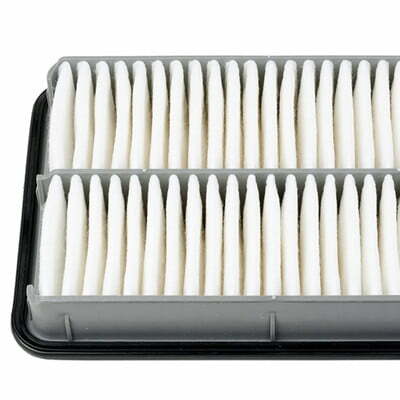
Foam
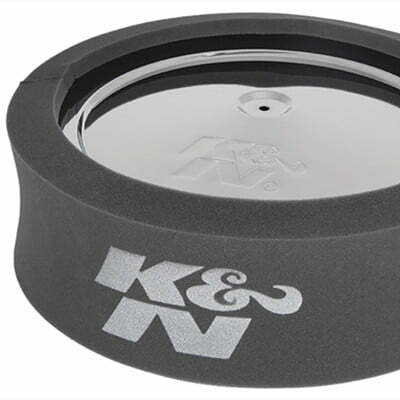
Stainless Steel
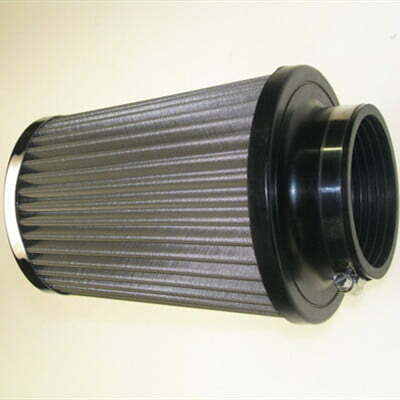
What does the engine air filter do?
The engine filter can be likened to a nose as it filters out particles before the air reaches the lung, ensuring that the respiratory system ca work well.
At full load, the engine absorbs between 200 and 500 cubic metres of air per hour, depending on the volume of exhaust. The air is filled with dirt and dust particles. Pollution levels are determined by a number of factors:
- Engine air filter,
- At this time of year,
- Weather conditions,
- The quality or nature of a pavement
- Environmental conditions
Thus it is necessary to use engine air filter in cars.
How does engine air filter work?
Engine air filters work by trapping some of the small particles that exist in most environments while allowing air to flow relatively unimpeded. In an automotive intake system, the air filter always sits ahead of the throttle body and mass air flow sensor.
In older applications, the air filter typically sat directly on top of the carburetor. In newer applications, air filters are typically installed in “air filter boxes” at the head end of the intake system. In those cases, the air inlet may be located on the box, or there may be a tube that leads from the box to the front of the engine compartment.
When air first enters the intake system, it has to pass through the air filter. As it passes through the filtration media, any particulate matter larger than the pores in the filter gets stuck, while the air itself is able to pass through. This causes a certain level of restriction on the flow of air, but it is typically negligible when the filter is relatively clean.
Without an air filter, particulate matter would be able to enter the throttle body and pass into the combustion chambers. Depending on the amount of particulate matter in the air, this could potentially cause damage to the engine or various components. In that way, an air filter “sacrifices” itself to protect the engine. Over time, the filter will gradually become clogged up, and it will eventually have to be cleaned or replaced (depending on what type of filter it is.)
Function
Air pollution levels in towns and cities are usually much higher than in the countryside. If these impurities are not effectively filtered, they can act like sandpaper on the engine, causing premature wear and tear on the mechanical parts. Dust and particles can also damage other components such as the air mass meter or the turbocharger.
Therefore, the engine air filter and related air filter elements are an essential part of any internal combustion engine. They provide the engine with clean air, which is necessary for trouble-free combustion. The air filter also suppress the engine’s inhalation noise.
Where air management in the vehicle is concerned, engine air filters perform a whole range of functions:
- Filtration of engine intake air
- Improved air flow for optimum combustion and engine acoustics (e.g. damping of suction noises)
- Integration of various components such as air mass meters, charge air lines or raw and clean air lines
- Protection of downstream engine parts such as a turbocharger or particle acceleration
Benefits of automobile engine air filters
- Better fuel efficiency
Replacing an old air filter in your car will increase the amount of air flowing into the engine. The more airflow into the engine, the more efficient the fuel will be, saving you money at the pump.
- Increasing engine life
Having a proper working filter is necessary to keep the engine air clean. Filters increase engine life by preventing particles from damaging pistons, fuel systems, and other critical components.
- Low cost
Unlike other components needed to run an engine properly, air filters are cheap and easy to install. For relatively little money, you can buy one of the best alternatives on the market for air filters.
- Reducingemissions
Keeping the air flowing into the engine clean means that dust, dust and debris will not be caught during combustion. This means the engine will burn cleaner, which in turn means cleaner exhaust.
When is it time to replace the engine air filter
How often should you change or clean an engine air filter?
Different engine air filters have different clean or changing interval.
Generally, for cheap engine air filter, you have to change it every 15,000 to 30,000 miles. The changing interval also depends on the driving conditions and your car’s type. However, if you drive in areas with high traffic volume, you might want to consider changing it every 6,000 miles. Also, you need to replace them every 3 years whether you’ve reached 15,000 miles or not. That’s because with time going by, the engine air filter will start to crack and crumble after long time, even though you haven’t driven your car so far.
For performance filters, you’d better check the manufacturer instructions because they may vary. Take K&N engine air filter for example. It can ride for up to 50,000 miles before a cleaning is required, and when paired with one of their cold air intakes, they can go up to 100,000 miles before a cleaning is necessary. The late-model Chevy Silverado guidelines say to replace it every 45,000 miles, and the BMW 3-Series calls for 50,000-mile replacement intervals.
Signs That Tell You It’s Time to Change the Engine Air Filter
The air filter has a key part in providing maximum power in your engine allowing airflow and retaining harmful pollutants in your intake manifold and valve mechanism. Make sure you know the warning signs for a failed filter so you can better judge when to replace it.
#1.Decrease in Gas Mileage
#2. Ignition Problems: Misfiring or Missing Engine
#3.Unusual Engine Sounds
#4.Check Engine Light
#5.Engine Air Filer’s Dirty Appearance, Discoloration
#6.Lower Horsepower
#7.Smell or Odor of Gas
#8.Black Smoke or Flames Exiting the Exhaust
#9. Damaged Filter Media
Decrease in Gas Mileage
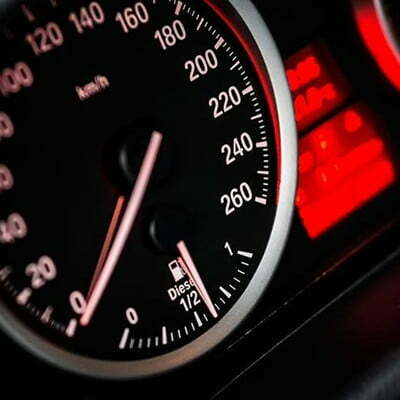
Ignition Problems
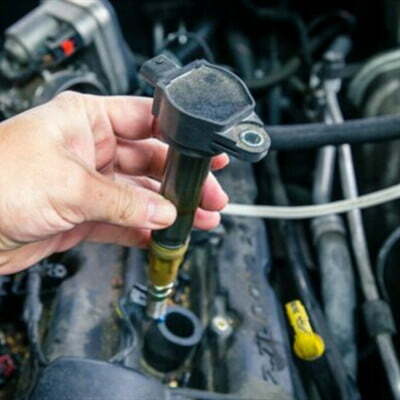
Check Engine Light
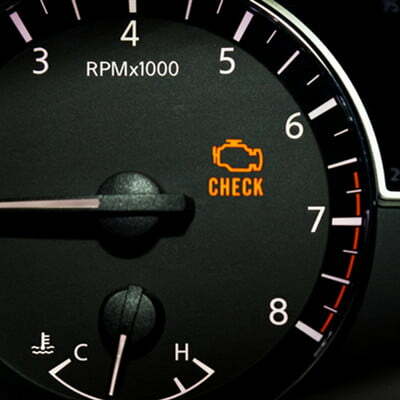
Black Smoke
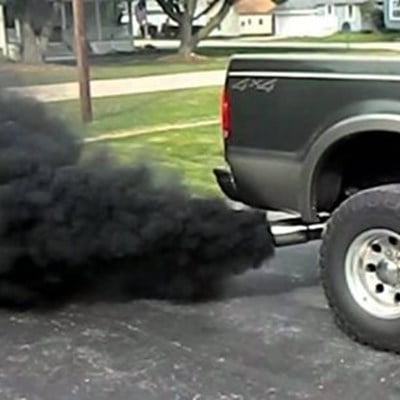
Why should I replace the engine air filter
Why Are Clean Air Filters Important?
Any internal combustion engine, be it gasoline, flex-fuel ethanol, diesel or even biodiesel, needs clean air mixed with fuel to function. More specifically, it has been estimated that for every gallon of fuel burned, up to 10,000 gallons of air are required to produce an ideal air/fuel mixture of 14.7 parts air and 1 part fuel.
Without proper air filters, dirty things like dust, dirt, or other debris can enter the engine and quickly cause severe wear on pistons, piston rings, cylinder walls, valves, camshafts, connecting rods, and associated bearings.
Convicting Reasons Air Filter Replacement Is An Absolute Necessity
#1 A bad car air filter will damage the mass air flow sensor
Car’s engine is powered by a mixture of air and fuel. The amount of air the engine receives is regulated by a component called a mass air flow sensor. For the most part, mass air flow sensors do not need to be replaced as regularly as brakes and belts. In any case, running your car mile after mile with a dirty air filter can damage the air quality flow sensor. In the event of a failure, the industry estimates the average maintenance cost of replacing the quality air flow sensor at about $400.
#2 Debris will corrode your engine
As the engine air filter accumulates more and more environmental pollutants, the debris and waste can find their way into the engine. This is a problem because these grinding particles are like shrapnel. While bug legs and tiny grains of sand may not seem to matter to us, they can have a serious effect on the moving parts of an engine. These little bits of waste will cut the engine to pieces. As more metal was scraped away and more debris piled up, the engine continued to degrade. First, this will affect your oil pressure and cause unnecessary corrosion. Over time, if this situation is not resolved, the entire engine may fail.
#3 Contaminants affect the fuel-air mixtures
To run effectively, a car needs a specific air-fuel ratio. When foreign substances enter the engine, they contaminate the fuel-air mixture. Fuel is deprived of clean oxygen, increasing the pressure on the engine. The fuel doesn’t ignite properly and robs power.
In fact, the U.S. Department of Energy says that when cars run with dirty air filters, the acceleration power is reduced by 6% to 11%. When the engine has to work harder to do its job, the fuel consumption and fuel economy go down. Eventually, the air filters become so dirty that the engine may stop working completely.
Benefits of Changing Your Air Filter
It seems that an engine air filter is not an important component to regularly check and change, but it’s are essential in maintaining your car’s performance. Changing your air filter has lots of benefits as follows.
#1 Reduces Fuel Consumption, Increased Fuel Efficiency
A new engine air filter can help increase the airflow into the engine. Poor airflow does affect performance. So a dirty or damaged air filter restricts the airflow into your car engine, making it work harder and, therefore, use more fuel. Since an engine needs more than 10,000 liters of oxygen to burn fuel per litre, it is important not to restrict the flow of air. Changing clogged air filters can improve fuel efficiency and acceleration, depending on the manufacturer and model of your car.
#2 Boosts Acceleration
Changing a dirty filter can increase the horsepower of vehicles. This increases the car’s acceleration up to 11%.
#3 Reduced Emissions
Engine air filter clogging reduces airflow into the engine, therefore affecting the vehicle’s emissions control system which will produce the incorrect air to fuel ratio. This can lead to faulty air-fuel mixtures and spark plug ignition problems, which can cause serious drivability problems. Spark plugs can become contaminated, which often results in missed or rough idling of the engine, as well as significantly affecting fuel mileage. It also increases engine sediment caused by too much fuel mix and may cause the service engine light to light up. By changing a new engine air filter, the airflow into the engine increases, which allows it to function properly, reducing fuel consumption and emissions.
#4 Prolongs Engine Life Span
A particle as small as a grain of salt can pass through a broken air filter and do a lot of damage to engine interiors, such as cylinders and pistons, which can be expensive to repair. That’s why it’s so important to change the air filters regularly. A clean air filter is designed to trap dirt and debris from outside air, prevent them from reaching the combustion chamber, and reduce the likelihood that you’ll receive a large repair bill.
#5 Saves you Time and Money
Replacing an engine air filter is easy and quite cheap. There are a wide range of engine air filters that you can choose from the market. You just need to check the owner’s manual to find out the right engine air filter type and the location in your car. Then you can learn to replace the engine air filter easily.
Bad engine air filter symptoms
If the engine of a car is the heart, the air intake is the lungs. When human breathe air, human carry the oxygen they need for life. Just as people need oxygen to survive, so do vehicles. But what happens when a dirty engine air filters blocks the necessary oxygen out?
An internal combustion engine runs on air, and a bad air filter can choke a vehicle. This could lead to widespread problems later on. Fortunately, the symptoms of dirty air filters are easy to recognize once you know what to look for.
Read on to learn about signs that your car needs air filter maintenance so you can keep it healthy and on the road for years to come!
Signs That Tell You It’s Time to Change the Engine Air Filter
The air filter has a key part in providing maximum power in your engine allowing airflow and retaining harmful pollutants in your intake manifold and valve mechanism. Make sure you know the warning signs for a failed filter so you can better judge when to replace it.
#1.Decrease in Gas Mileage
What you have to pay attention to is your car’s gas mileage. A common symptom of a dirty air filter is a decrease in fuel efficiency. Your engine generates enough power by consuming more fuel to compensate for the lower oxygen content. By maintaining a clean, efficient air filter, you can save on fuel costs.
#2. Ignition Problems: Misfiring or Missing Engine
If you notice that the engine doesn’t start easily, it’s probably because the engine air filter is dirty. Dirty air filters can greatly impede the flow of air into the engine, resulting in excessive air-fuel mixing. A highly concentrated air-fuel mixture can contaminate spark plugs, which can cause your engine to stall or catch fire completely. This is most obvious when your car is idling roughly and you have trouble starting the engine.
#3.Unusual Engine Sounds
You should feel the smooth hum of an efficient engine when the car is not running. If you notice your car vibrating or hear coughing or sliding, this could be a rough idling route. This happens because the air filter is blocked and the spark plug is damaged.
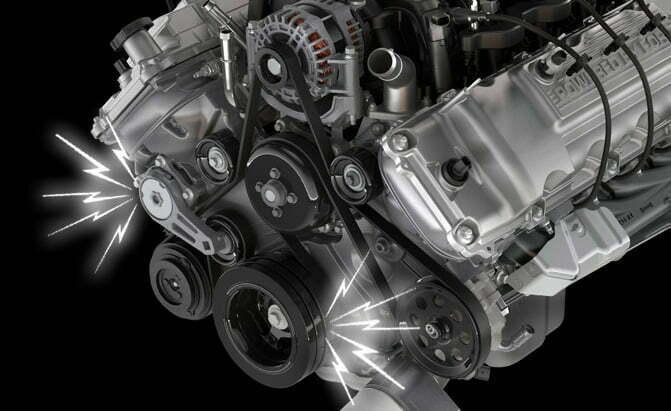
#4.Check Engine Light on
This car’s engine mixes thousands of gallons of air with a gallon of gasoline to power your car. Insufficient air can lead to accumulation on the engine, which may eventually trigger your service engine lights. If this light is on, you should check your air filter to see if it is dirty and needs to be replaced.
#5.Engine Air Filer’s Dirty Appearance, Discoloration
If your air filter is brand new, it will look white or off-white. It darkens over time as dust and dirt accumulate. When checking your air filter, you should be in the sun or use a flashlight, because pollen and dust are not easy to see. If you think your air filter is dirty, it needs to be replaced.
#6.Lower Horsepower
Pay attention to your car’s acceleration. If you press down on the accelerator and your car doesn’t respond properly, or you notice jerking movements, it shows that your engine isn’t getting the air it needs to run. When this happens, you should check and replace the filter if it looks dirty.
#7.Smell or Odor of Gas
When you start the car, if not enough oxygen goes into the carburetor or fuel injection system, the excess unburned fuel leaves the car through the exhaust pipe. You’ll notice the smell of gasoline and know it’s time to change the air filter.
#8.Black Smoke or Flames Exiting the Exhaust
A lack of air supply can cause some fuel not to burn and exit the car through the exhaust pipe. If you see black smoke coming out of your tailpipe or you might also hear a cracking sound or see a flame in the exhaust tail, you may need to change or clean the air filters.
#9. Damaged Filter Media
Any opening in the filter medium will allow dirt and contamination debris, or particles, to bypass the filter and interfere with the large flow (MAF) sensor. The mass flow (MAF) sensor plays an important role in telling the engine’s electronic control unit (ECU) exactly how much oil to spray for optimal efficiency and performance. If a damaged engine air filter is ignored, dirt sticking to the MAF sensor will eventually prevent it from telling the ECU how much fuel is needed. It’s worth noting that if the MAF sensor is damaged, it will most likely need to be replaced.
Bad engine air filter causes
Problems that occur when the engine air filter is replaced irregularly & Consequences of using unqualified engineair filter
Incorrect engine air filter installation or installing unqualified engine air filter can allow your engine to turn on dirt and debris. Extensive damage may occur when the engine intake is not fully covered by the filter element. Here are some common examples:
#1 The turbocharger is damaged
Engine air filters are particularly important for turbocharged engines. The turbocharger forces supercharged air into the engine to improve performance. One side of the turbocharger, the impeller side, is connected to the intake of the engine. Without an effective air filter, dirt and debris can easily enter the turbocharger, causing extreme damage. Worse, the metal from a malfunctioning turbocharger enters the engine and circulates through the system. This could cause the engine to fail completely.
#2 The internal engine is damaged
As the piston moves downward in the engine, air is drawn in. This occurs during the engine’s intake stroke. Without an engine air filter, the engine may also inhale dust and debris. This can consume defective engine parts such as valves, pistons and cylinder walls. The result is excessive fuel or oil consumption and poor engine performance, ultimately leading to engine failure.
In some cases, a strictly restricted filter will also allow contaminants to enter the turbocharger and engine. This is because the engine has to work harder to get enough air in. The result is a vacuum effect that sucks dust and debris into the engine.
Lear more about engine air filter removal and installation: How to change an engine air filter? & Common question about replacing engine air filters/FAQ



